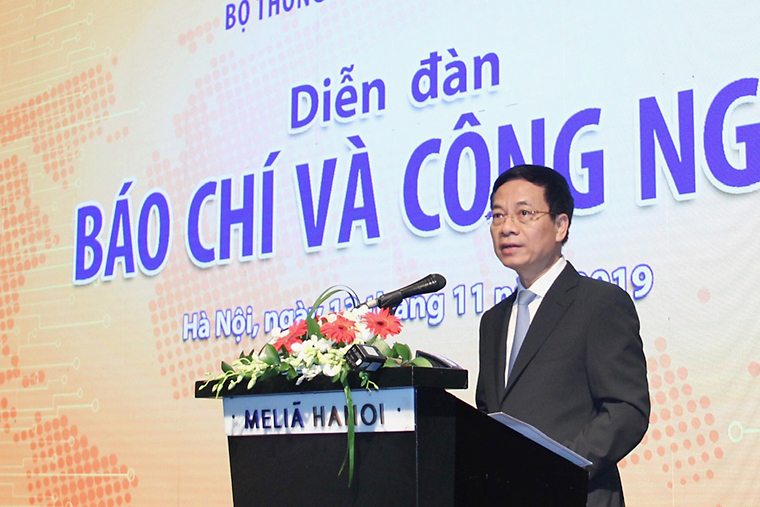
The minister was speaking at the Press and Technology Forum held yesterday in Hà Nội.
In the face of disrupting challenges in this new era, many media firms either “missed out, given up, or have not even begun” to embrace new technology trends, he said.
Minister Hùng said choosing journalism means to undertake a mission to better society and serve the common good, he said, adding that journalism requires many virtues – precision, independence, confidentiality, humanitarianism, responsibility and transparency.
Technology and digital transformation in the press would help journalists and the media do their jobs better, he said.
“In the digital age, press access to the well of human knowledge and important data sets is sometimes just a click away,” he said.
“But we ourselves must change, before technology awards the mission to another force,” Hùng said.
Lưu Đình Phúc, head of the Department of Press under the Ministry of Information and Communications (MIC), said that digital platforms like Facebook and Google are hogging businesses’ advertising budget, at the expense of traditional media, so the media should work to come up with a new business model.
“The pace of technological development is relentless. Artificial Intelligence (AI) is getting increasingly robust and providing more and more personalised services as well as ways to tell a story or deliver contents.
"Blockchain technology opens up novel payment and verification methods.
"The press needs to integrate themselves with the new technologies,” Phúc said, citing examples of using AI to suggest to readers articles that might entice them.
On the other hand, while embracing new technology, press agencies should be mindful of threats in cyberspace, said Nguyễn Huy Dũng, Director of Information Security Authority under the MIC.
"Press agencies are the targets of cyber thefts and hackers, with many online news sites have fallen victim to large-scale DDoS (distributed denial-of-service) attacks," he said.
According to the official, hackers do not target directly servers or host computers but deliver the attacks via end-user computers.
Hackers could send a seemingly innocuous email disguised as work emails or emails from well-known brands to trick unknowing users into opening malicious links, infecting their computers and then the whole network.
He urged press agencies to step up cybersecurity measures and provide training for reporters on information security.


